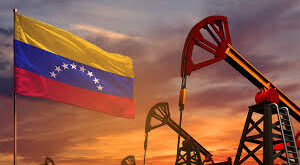This was the most positive set of remarks so far this year by Saudi Energy Minister Prince Abdul Aziz bin Salman, when he opened the Joint Ministerial Monitoring Committee (JMMC) of OPEC+ (an alliance between OPEC and 10 non-OPEC countries led by Russia).
The JMMC monitors compliance of OPEC+ member countries with the historic 7.7 million barrels per day (bpd) crude oil production cuts.
As such, the JMMC is not a deciding body, but it ensures agreements are kept and it also sets the tone for the upcoming OPEC+ ministerial meeting on Nov. 30/Dec. 1.
Similar to so many other world leaders, the Saudi energy minister’s statements were a testament to his relief about the positive news of upcoming vaccines for the coronavirus disease (COVID-19) and their efficacy. In his words, the news “allows us to see some glimmer of light at the end of the tunnel.”
Prince Abdul Aziz had a point when he praised the 99.5 percent overall compliance of OPEC+ and highlighted that between OPEC+ and other scheduled as well as voluntary cuts, 1.6 billion barrels were successfully kept off the markets between April and October of this year. This was necessary in light of the historic demand collapse due to COVID-19. The October compliance stood at 101 percent, according to OPEC.
The prince mentioned other positive signs such as recovering Asian demand particularly in China and India. Yet, the virus still goes unchecked in North America and Europe. OPEC ministers worry how restrictions and lockdowns will affect demand.
Russia’s Deputy Prime Minister Alexander Novak, who co-chairs the JMMC together with Prince Abdul Aziz, particularly highlighted concerns about demand and mentioned the future of air travel as a key example.
While the tone was more upbeat than in previous months, all three speakers — Prince Abdul Aziz, Novak, and OPEC President and Algerian Energy Minister Abdelmadjid Attar — stressed that this was not the time to take the eye off the ball and that compliance with production cuts was of utmost importance. The Saudi energy minister said: “… We must maintain high compliance while retaining the flexibility and nimbleness to adjust our commitments in changing market conditions.”
This is cleverly put, because it leaves all options open for the ministers of OPEC+ at the meeting on Nov. 30/Dec. 1.
Even if there is a vaccine on the horizon, it will take until its dissemination for there to be an impact on demand. Attar pointed out that it would take time for the world economy to recover to pre-pandemic levels.
In the same vein, the OPEC press release stated that, “all participating countries need to be vigilant, proactive, and be prepared to act, when necessary, to the requirements of the market,” which again leaves all doors open to be flexible at the end of the month.
Flexibility is good, but ministers will not get around deciding whether they really want to adhere to the schedule they agreed on in April, which would require them to reduce the current 7.7 million bpd production cuts to 5.8 million bpd from Jan. 1 through April 30, 2021. An extension of the existing regime for three to six months is said to be under consideration.
As things stand now, it looks too early to add 2 million bpd to the market, despite recovering Asian demand. This holds especially true when we add the incremental 1 million bpd of production from Libya, which produced fewer than 100,000 bpd in summer and more than 1.1 million bpd as of last Friday. Both Brent and West Texas Intermediate (WTI) fell immediately after the JMMC meeting concluded, which seems to support concerns about excess supply.
Libyan production is the elephant in the room because the North African nation is currently exempt from production cuts alongside Iran and Venezuela. It may not be that easy to bring Libya under the umbrella of production cuts, because the country is just about to emerge from a very difficult period in its civil war.
All in all, Prince Abdul Aziz is correct when he appeals for flexibility and the ability to tweak OPEC+ arrangements. That flexibility is important, but changes to existing agreements — however necessary — are not always easy to achieve, because OPEC requires unanimous decisions and production cuts weigh heavily on the budgets of member countries. Some of them may feel that they lack the financial wherewithal to take on more pain.
While the news on vaccines is great, the world economy is by no means out of the woods yet as rising COVID-19 case numbers in Europe and North America prove. Nov. 17 was a day where market sentiment was particularly exuberant on the news of the Moderna and Pfizer/BioNTech vaccines. We have learned that sentiment can change quickly in these difficult times. Therefore OPEC+ is correct to give itself room for maximum flexibility.

 Iran Energy News Oil, Gas, Petrochemical and Energy Field Specialized Channel
Iran Energy News Oil, Gas, Petrochemical and Energy Field Specialized Channel



